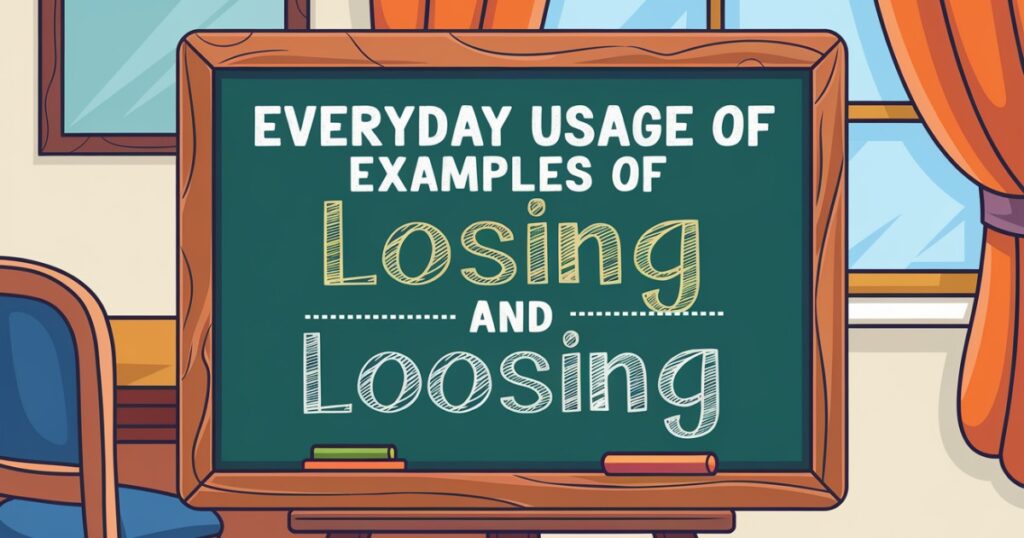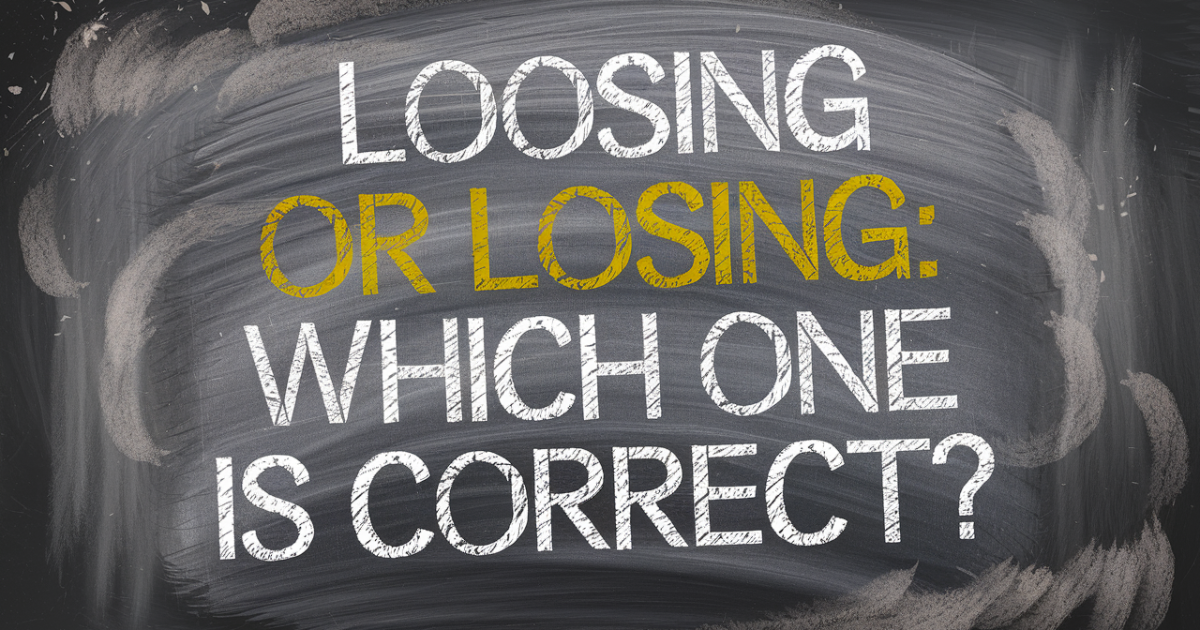When it comes to the words loosing or losing, many people often find themselves puzzled about the correct usage. While both words sound similar, only one is accurate in standard English. The confusion usually arises due to the phonetic similarities and the way these terms are pronounced, but they have distinct meanings that are important to understand.
The term “losing” is the present participle of the verb “lose,” which means to fail to keep or maintain something, such as a game, an object, or a relationship. On the other hand, “loosing” is the present participle of the verb “loose,” meaning to release or set free.
Understanding Loosing And Losing

Loosing: Definition and Usage
Loosing is the present participle of the verb “loose,” meaning to set free, release, or make something less tight. It is often used in contexts involving physical or metaphorical release.
Usage Examples:
- The team focused on loosing the ropes to free the trapped boat.
- She felt a sense of relief after loosing her worries and embracing a more carefree attitude.
Losing: Definition and Usage
Losing is the present participle of the verb “lose,” which means to fail to keep, maintain, or win something. It can refer to the loss of objects, opportunities, or even games. Understanding this term is crucial in various contexts, from everyday situations to competitive environments.
Usage Examples:
- He was losing track of time while engrossed in his favorite book.
- The team was losing the match by a narrow margin, but they remained hopeful for a comeback.
You Also Like To Read This: Priviledge Or Privilege: What Is The Correct Spelling?
Side-by-Side Comparison
| Aspect | Losing | Loosing |
| Definition | Losing is the present participle of “lose,” meaning to fail to keep, maintain, or win something. | Loosing is the present participle of “loose,” meaning to set free, release, or make less tight. |
| Common Usage | Used in contexts involving loss of objects, opportunities, or competitive outcomes. | Used in contexts involving the act of releasing or making something less constrained. |
| Key Difference | “Losing” pertains to failure or loss, while “loosing” refers to freeing or loosening something. | “Losing” is commonly used and essential in everyday language, whereas “loosing” is less frequent and often misused. |
The distinction between “losing” and “loosing” is crucial for clear communication, as mixing them up can lead to confusion in both writing and conversation. “Losing” frequently appears in discussions about competition, emotions, or possessions, making it a vital term in everyday language.
In contrast, “loosing” tends to be less common and typically relates to physical actions or metaphorical releases. By understanding the differences, you can enhance your writing skills and avoid common spelling errors.
Everyday Usage Examples

Losing Examples
- She was losing hope after several failed attempts to find her lost dog.
- The team is losing its focus as the game progresses.
- He is losing weight after starting a new exercise regimen.
- They were losing money on their investment due to market fluctuations.
Loosing Examples
- He is loosing the knots in the rope to make it easier to handle.
- The dog was loosing its collar during playtime in the park.
- She felt a sense of freedom loosing her fears and doubts.
- Loosing the screws from the cabinet will make it easier to move.
Conclusion
In conclusion, understanding the correct usage of “losing” and “loosing” is essential for effective communication. “Losing” is a term frequently encountered in everyday conversations about failure or loss, while “loosing” relates to the act of releasing or freeing something.
Misusing these terms can lead to confusion and misinterpretation, so it’s important to be mindful of their meanings. Familiarizing yourself with examples can help reinforce the distinctions between the two.

Grammerlytips.com, authored by Jame, offers expert tips and insights on mastering grammar, enhancing writing skills, and boosting communication effectiveness.

